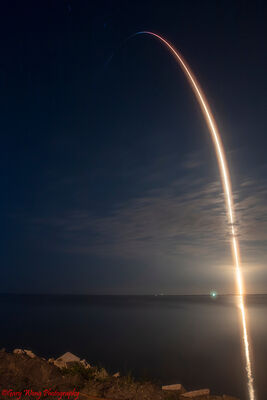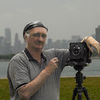Polarizing filter?
Dec 1, 2013 06:02:09 #
OK Bret, how did you get that blue sky in Ohio this time of year? :) Must be an older shot? Good morning. Gary
Bret wrote:
This shot was taken with a 20mm lens with a B&W polarizer filter...it defiantly will help with color...water reflections. The trick is to know how to use it.
Dec 1, 2013 06:36:04 #
Good morning Gary. Yes that shot is a little over a month ago. I keep a close eye on the weather and a front moved out that evening...can barely see the western edge of it in the far background. Actually when I got set-up the sky was totally clear...most boring sunrise iv'e seen.
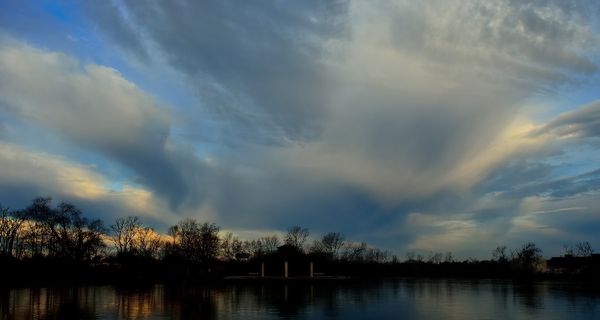
Dec 1, 2013 06:41:31 #
I got this one yesterday....same pond...only i'm on the eastern side looking back to the west. The eastern sky was overcast...and just a few minutes later overcast here in Dayton. The B&W polarizer helps...and some p/p with ViewNX2...that's about it.
Dec 1, 2013 06:43:14 #
CocoaRoger wrote:
I'm watching a photography show and they said when doing landscapes etc... to ALWAYS use a polarizing filter. They said it makes a huge difference with colors and glare but didn't show any example. So I was wondering what everyone else not only has to say but maybe some examples as well? Thanks
always a good idea. I have one on my lens at least 90 % of the time
Dec 1, 2013 07:02:09 #
Elliern wrote:
Which Hoya? I want it for my Canon sx50 so needs to be 58mm. Saw 2 on amazon the Hoya pro cpl made in Japan and a newer one that is glass made in the Phillipines. B&H also has the one made in Philllipines. Neither is very expensive. $35 at B&H and the Hoya Pro and the newer model are both priced under $20 on Amazon.
You get what you pay for. You are not saying if they are linear or circular. For auto focus you need a circular polarizer.
Dec 1, 2013 07:02:11 #
CocoaRoger wrote:
I'm watching a photography show and they said when doing landscapes etc... to ALWAYS use a polarizing filter. They said it makes a huge difference with colors and glare but didn't show any example. So I was wondering what everyone else not only has to say but maybe some examples as well? Thanks
Strange advice but I have heard it before.
Remember that with a polarizing filter you lose 2 stops.
It is good to remove unwanted reflections but will upset any you may want - such as in picture 1 which would most likely be impossible with a filter.
Polarizers work best within a limited angle to the sun and can darken colours and bring out the sky. Picture 2 was taken without filter and picture 3 was with (I don't usually bother with the polarizer unless it is really needed). All pictures were taken yesterday. The picture with filter is more dramatic but could be an individual taste whether it was preferred to the other.
One 'characteristic' of a polarizer is that occasionally you may find one side of the sky much darkened with the filter while the other shows no sign of a filter being used. Probably someone on UHH will be able to explain this.
Wanted reflections
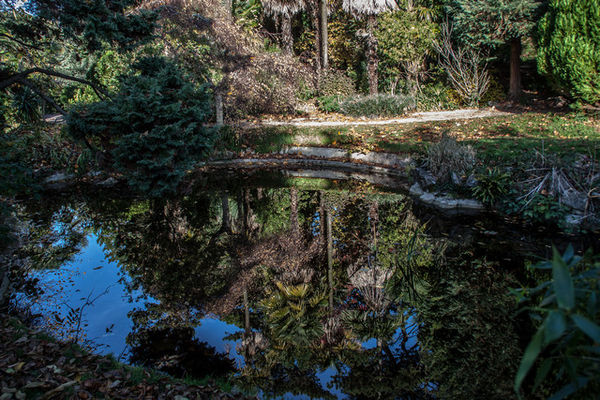
Without polarizer

With polarizer
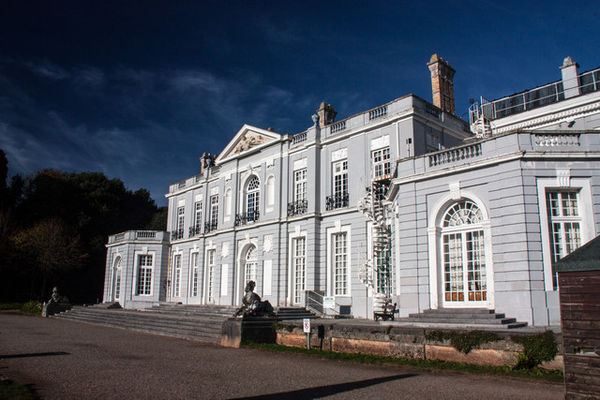
Dec 1, 2013 07:11:47 #
Dec 1, 2013 07:15:53 #
DaveHam
Loc: Reading UK
Using a polarizing filter always is not a good idea. The principal function it performs is to enhance color range in situations with strong light. It works best when the source of light, usually the sun, is at 90 degrees to the filter. With the light source directly in front or behind the polarizing effect is minimal to zero.
The polarizer also affects exposure requiring a two or three stop compensation.
In situations where a polarizer might be used you could consider an ND grad as an alternative; these do work with the light source in all positions.
The polarizer also affects exposure requiring a two or three stop compensation.
In situations where a polarizer might be used you could consider an ND grad as an alternative; these do work with the light source in all positions.
Dec 1, 2013 07:25:41 #
CocoaRoger wrote:
good idea thanks, meanwhile on this show they are shooting a waterfall at night. Something I would never have thought of doing. He wants to illuminate the fall yet get stars in the background so he set his ISO 1600, F stop 4 and a twenty second exposure but then he took a flashlight and shined it up and down and around the waterfall so the exposure gives him a almost glowing waterfall while still seeing the stars in the sky. Heck of an idea.
And with digital photography you can do things like that and get instant feedback and/or gratification and try again until you get it right!
Dec 1, 2013 07:26:25 #
CocoaRoger wrote:
I'm watching a photography show and they said when doing landscapes etc... to ALWAYS use a polarizing filter. They said it makes a huge difference with colors and glare but didn't show any example. So I was wondering what everyone else not only has to say but maybe some examples as well? Thanks
The only way to learn is to try it your self. Experience is the best teacher.
Dec 1, 2013 07:32:56 #
CocoaRoger wrote:
I'm watching a photography show and they said when doing landscapes etc... to ALWAYS use a polarizing filter. They said it makes a huge difference with colors and glare but didn't show any example. So I was wondering what everyone else not only has to say but maybe some examples as well? Thanks
Have you ever taken a photograph of gorgeous autumn leaves, and when you look at the photograph later the colors just seemed washed out compared to how you remember it? That is because of glare from the leaves. That is a scenario where a polarizer can make all of the difference in the world. Also, with photos involving water where you do not want glare - but you really have to play around with it to see exactly what it does and doesn't do - and as mentioned, it cuts the light entering the camera by several f-stops, so you might require a tripod where without a polarizer you didn't. And because the effect of the polarizer is a function of the angle of light, a big blue sky may become more blue on one side than the other, especially in a wide-angle photo, so be aware of that.
Dec 1, 2013 07:46:30 #
I agree, with that thought, by using a polorizer correctly, you can get colors to pop, make the clouds look dramatic, and make your photo, stand out............
Dec 1, 2013 07:47:06 #
Dec 1, 2013 08:29:51 #
Dec 1, 2013 09:01:04 #
If you want to reply, then register here. Registration is free and your account is created instantly, so you can post right away.
